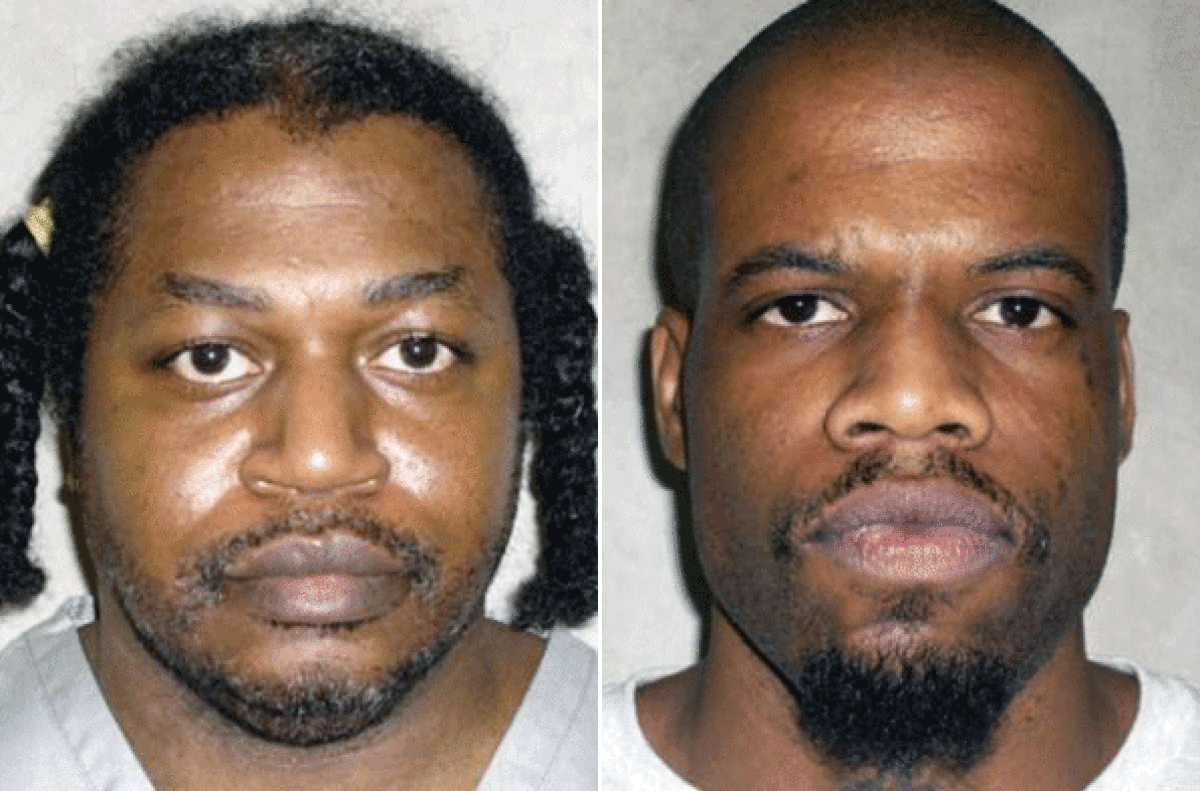Oklahoma’s stealth executions are an injustice

- Share via
A month from now, if all goes according to plan in Oklahoma, two convicted murderers will be executed by lethal injection, and without knowing exactly how the killing cocktail was put together or by whom. Without that knowledge, they could well be denied their basic constitutional protection against cruel and unusual punishment.
The death penalty, as we’ve written before, is an indefensible mess of immorality, gamed judicial processes, misapplication based on race and class, and public expense. Now we can add that, at least in Oklahoma, it is being carried out in a climate of unacceptable secrecy. If the government is going to insist that it has the right to execute citizens, it must be transparent about the process and be ready to defend it in court.
Some background: In 2011, Oklahoma changed its execution law to grant the Department of Corrections considerable leeway in determining which drugs to use, and barred public disclosure of the drugs’ source. Before then, the state used a protocol of sodium thiopental or pentobarbital as an anesthetic, followed by vecuronium bromide as a paralytic, then the “kill shot” of potassium chloride to stop the heart.
The law was changed because the death penalty has fallen into such disfavor that drug companies are loath to make or sell drugs to kill people, and the revision was an attempt to make it easier to procure them. Apparently, it didn’t work. Oklahoma officials said last week that it has run out of some of its standbys, and a state appeals court on Tuesday granted a month’s postponement of the executions — originally set for this week and next — to give the state time to find the drugs or develop a new protocol. A likely source of such drugs: a “compounding pharmacy,” which creates customized drugs without FDA oversight and thus, critics say, with unverified consistency and purity.
The two condemned men, Clayton Lockett and Charles Warner, have filed for a longer stay of execution while they challenge the constitutionality of the 2011 law, arguing that the disclosure ban denies them due process by precluding their ability to determine whether the protocol violates the 8th Amendment’s ban on cruel and unusual punishment. If they don’t know who made the drugs and how, they can’t know how much pain the drugs might inflict.
It’s not as though their fears are warrantless. In January, condemned Oklahoma killer Michael Lee Wilson said, as the first drug was injected: “I feel my whole body burning.” Under Oklahoma’s procedural secrecy, it’s unknown what that drug was, whether it would be used again or whether it would survive a constitutional challenge.
This is unacceptable. Condemned prisoners have a right to the facts necessary to determine whether they face unconstitutional punishment, and Oklahoma’s shroud of secrecy indefensibly denies them that basic legal protection.
More to Read
A cure for the common opinion
Get thought-provoking perspectives with our weekly newsletter.
You may occasionally receive promotional content from the Los Angeles Times.






